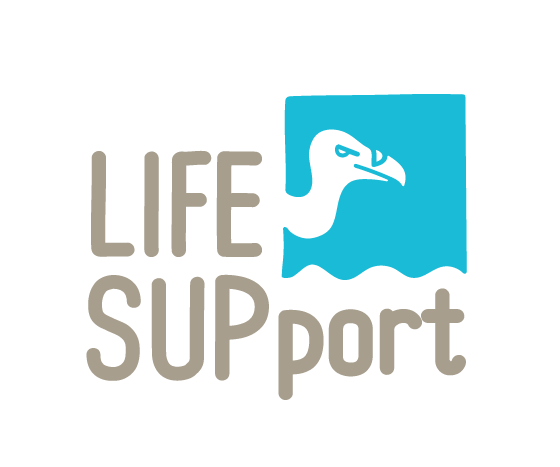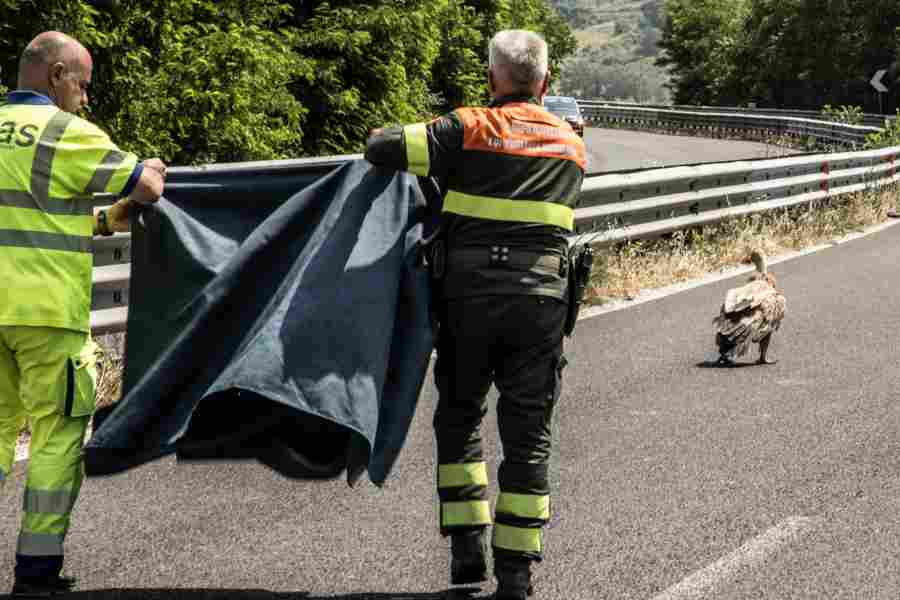A new project to strengthen the endangered Griffon Vulture (Gyps fulvus) population in Croatia has just started. LIFE SUPport is a 5-year project co-financed by the EU’s LIFE Programme that will create better conditions for the species to thrive and recolonise its historical breeding ground on Croatian mainland.

Securing a future for Griffon Vultures in Croatia, new project LIFE SUPport
Once home to three vulture species, during the 20th century both the Egyptian Vulture (Neophron percnopterus) and the Cinereous Vulture (Aegypius monachus) became extinct in Croatia. The Griffon Vulture was the only species who survived, with a remaining breeding colony confined to the Kvarner islands (which include Cres, Krk, Plavnik and Prvić). The estimated population of 120 breeding pairs plays an important role connecting the Alpine and the Serbian Griffon Vulture populations.
The Griffon Vulture is an endangered species in Croatia, currently absent from most of its breeding range in mainland (the last pair disappeared in 2003). Aiming to bring back the Griffon Vulture population to their historical breeding ground on Croatian mainland, the LIFE SUPport project will improve breeding and survival conditions and tackle the main threats affecting the species survival. Awareness raising and education of the main stakeholders will be determinant for the project’s success.
Reducing nestling mortality
In the Kvarner islands, the estimated 120 breeding pairs nest right above the sea, making it one of the few places around the globe where Griffon Vultures breed in cliffs (instead of mountains). This poses a threat to immature birds still mastering their flying skills and every year some individuals fall into the sea, partly due to human disturbance. If not rescued on time, they drown. The Beli Visitor Centre and Rescue Centre for Griffon Vultures has a fundamental role in rescuing and rehabilitating these vultures.
The project will minimise nest disturbance by raising awareness of boat owners, tourists and fishermen about desirable behaviour near Griffon Vulture colonies during the sensitive nesting period. Improvements on the rescue and rehabilitation operations of the Beli Rescue Centre for Griffon Vulture will also be done. Also, all birds rehabilitated will be tagged with GPS transmitters, to monitor the birds’ movements and provide information about potential cases of wildlife poisoning or death by electrocution.

Tackling the threat of poison
Direct and indirect poisoning are some of the highest threats for vultures, according to the Multi-Species Action Plan (Vultures MsAP) coordinated by the Vulture Conservation Foundation and endorsed by the Convention for Migratory Species (CMS). Despite banned in all European countries since the 1980’s, in Croatia illegal poison baits are still a recurrent practice by livestock farmers, as an attempt to reduce the damage caused by jackals and other generalist predators. Vultures fall victim by feeding from poisoned carcasses and this practice was one of the main causes of extinction of the other two vulture species that once bred in the country.
The project will work directly with farmers to help them better safeguard their herds with fences and shepherd dogs. Following the actions implemented by the BalkanDetox LIFE project and the Wildlife Crime Academy, the project will increase capacity of the competent institutions on criminal investigation and law enforcement for wildlife poisoning cases.
Another frequent source of poisoning for vultures is lead, contained in hunters’ ammunition. Since February 2023, the use of lead ammunition is illegal in and around wetlands in all EU countries. Until a total phase-out is announced, project partners will work with hunter associations to promote the use of lead-free ammunition.
Mitigating collision and electrocution risk
Reducing mortality related to collision and electrocution is also one of the project priorities. In recent years, mitigation measures have been implemented in Cres Island. During the project, partners will secure 200 medium-voltage poles on other Kvarner islands and in Učka mountains. In Učka Nature Park, thanks to the efforts and involvement of many stakeholders, for the first time in 100 years, Griffon Vultures were recorded this year breeding in the cliffs.
The mitigation measures include also training volunteers to search for bird-killing power lines and educate 60 employees from energy companies on the importance of improving electric infrastructures.
Increasing food availability
In the Kvarner islands, the Griffon Vulture survival largely depends on human activities such as sheep grazing. Due to the decrease of sheep herds in the last decades, the lack of food availability is being compensated by supplementary feeding stations for vultures. The project will increase the capacity of these stations and a new feeding station will be implement in Krk. Cooperation with local shepherds and hunters will be fundamental to achieve this goal.
LIFE SUPport project

The LIFE SUPport is a 2.1 million project, co-financed by the EU’s LIFE Programme, running from January 2023 until December 2027. The project’s effectiveness relies on the joint efforts of its committed partners and the involvement of all relevant stakeholders. Led by BIOM, the partnership includes the Public Institution Priroda, Otok Krk Agricultural Cooperative, HEP – Operator distribucijskog sustava d.o.o., the energy distribution company, the Vulture Conservation Foundation and the Croatian Nature Protection Directorate (Ministry of Economy) as an associate partner.




